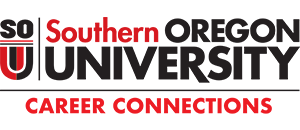A Resource for the SOU Community
Southern Oregon University’s Office of Career Connections provides resources to assist students identify and achieve their individual career goals in order to lead lives of purpose. We welcome all students and embrace opportunities to collaborate with employers, graduate and professional schools, faculty and staff, and student organizations, as well as parents and alumni in order to provide the highest quality of service to our students.
Student
Access a comprehensive planning process to ensure you end up right where you want to be after you graduate from SOU.
Employer
Ready to hire a Raider for a great new job or internship? Explore ways to post available positions, discuss internships, and more!
Faculty & Staff
Find support for PEAK jobs and employing students; from initial position conception to hiring and working with students year over year.
More from Career Connections
View the links below and explore the content on this site to gain access to all aspects of resources and support available from the Office of Career Connections at Southern Oregon University.




